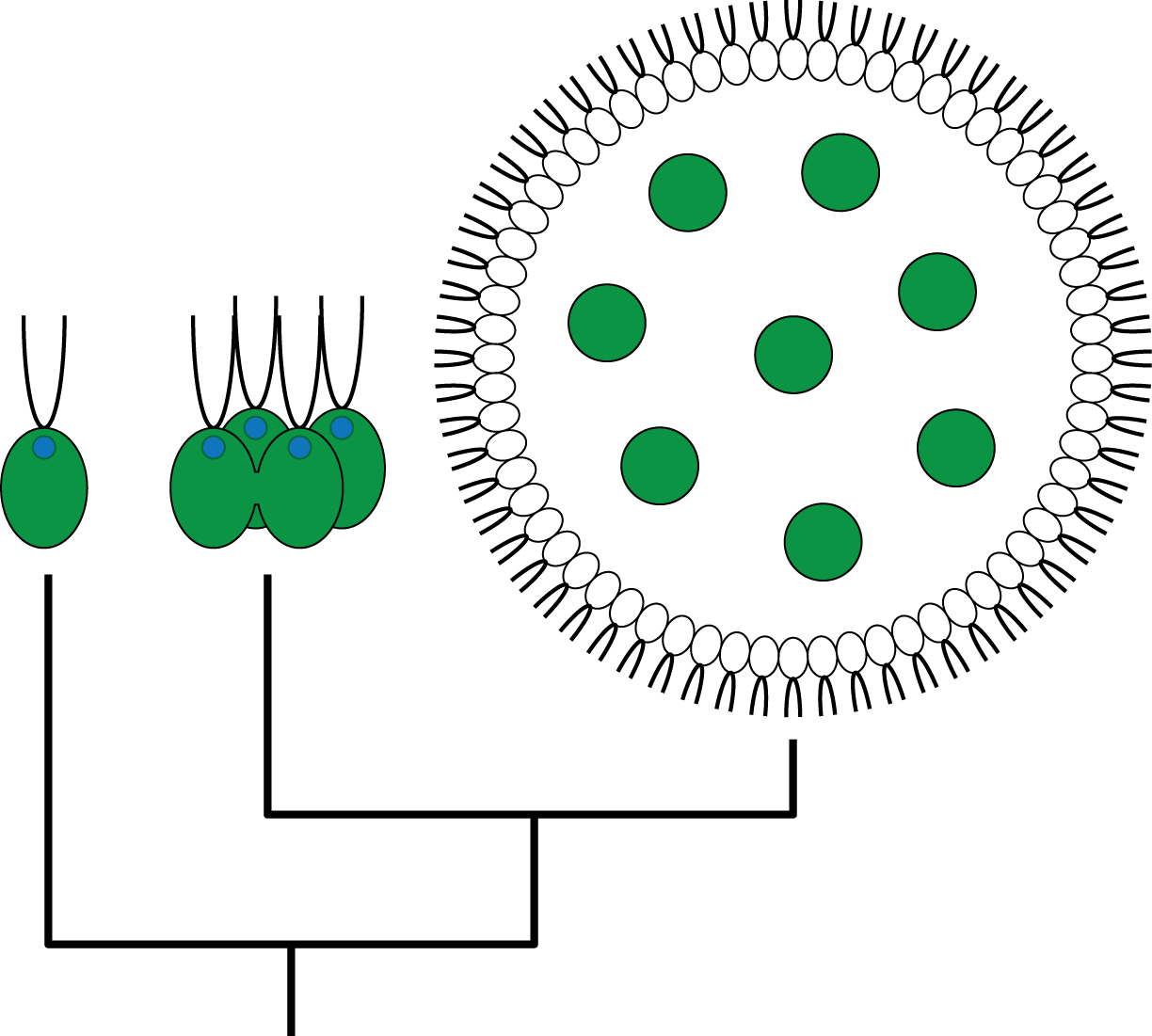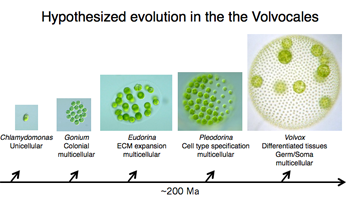Our research is focused on the molecular basis of evolutionary state transitions, particularly multicellular evolution. Understanding how multicellular organisms evolve is a challenging problem because the molecular signature of this transition is obscured by divergence in most lineages. However, the volvocine algae transitioned to multicellularity recently and the molecular signature of this transition remains intact in their genome.
Because the lab does a lot of “-omics”, we also are working to develop tools to handle the large amounts of data we generate. The lab currently is developing machine learning as a tool for making inference in giant “-omics” an genotype-phenotype data sets. We have numerous collaborations with colleagues that face similar challenges.
Projects
Evolutionary genomics of the volvocine algae
Here we were previously funded by NSF to sequence the genomes of several key species of the volvocine algae. In addition, we have performed RNA-sequencing of these species during their development to better understand how the genome and their development evolve to promote multicellularity.
Recently, we were again funded by NSF to understand how cell cycle control in the volvocine algae has evolved to promote multicellularity. We are using a combination of genomics, ChIP-sequencing, proteomics and related techniques to understand how genome-wide gene expression is altered by the retinoblastoma protein to evolve multicellularity.
Genetic screens reveal novel insights into multicellular evolution
To complement our “-omics” approaches we have used forward and reverse genetics to understand which genes are important for multicellularity. In particular, we are interested in the genes important for the transition to undifferentiated multicellularity. We have numerous mutants from these approaches that we are pursing that are revealing surprises in our understanding of multicellular evolution
Evolution of cooperation
It is assumed the evolving multicellularity is a difficult thing for organisms to do. However, we have found that many unicellular organisms are intrinsically cooperative suggesting that the evolution of multicellularity may not be as challenging for organisms to do as previously thought.
Developing machine learning to understand “Big Data”
The “-omics” revolution in biology has created “Big Data” problem. It is far to easy to develop vast amounts of data that is difficult, if not impossible for humans to analyze directly. To approach this challenge, we are developing novel machine learning approaches for generating inference into our data sets. We have numerous active collaborations on this front because we have found that many labs face similar challenges.

